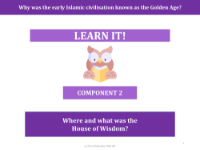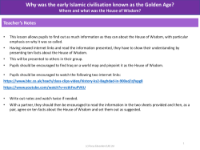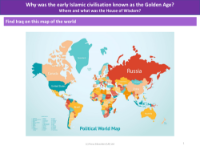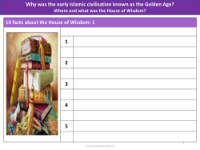The House of Wisdom - Info Pack - Islamic Civilisation - Year 5
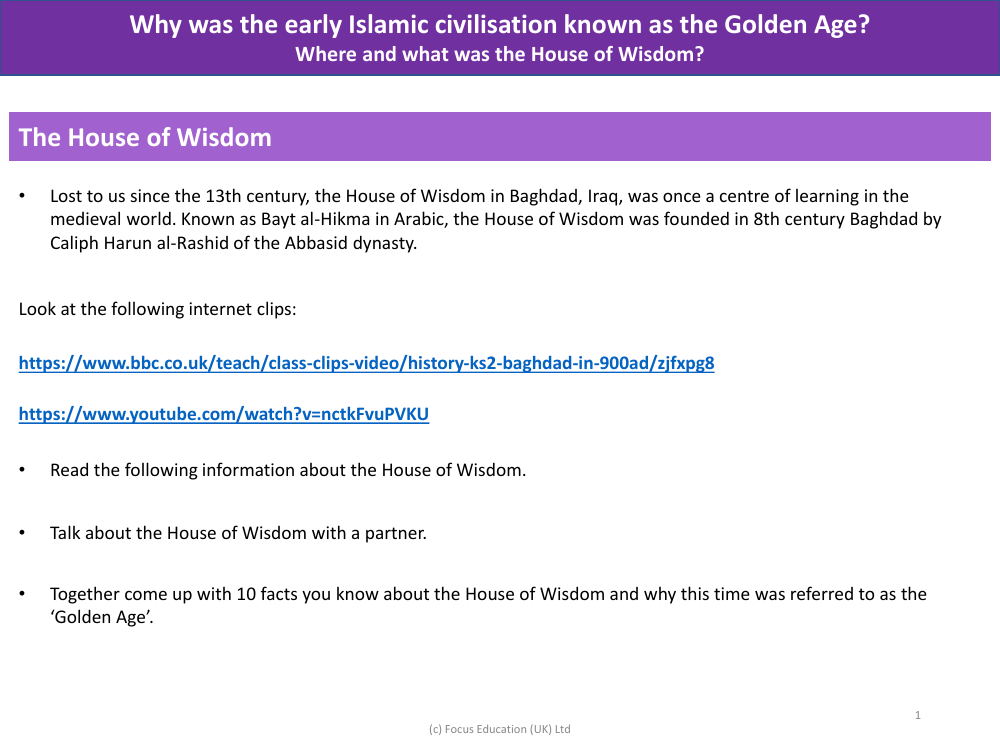
History Resource Description
The House of Wisdom, or Bayt al-Hikma in Arabic, was a beacon of scholarship and intellectual pursuit during the medieval period. Founded in the 8th century by Caliph Harun al-Rashid of the Abbasid dynasty, it stood in Baghdad, Iraq, until its loss in the 13th century. More than just a library, the House of Wisdom served as a research centre where the brightest minds of the time, including Muslims, Christians, and Jews, convened to exchange knowledge across a multitude of disciplines such as astronomy, mathematics, science, medicine, and dentistry. This cross-cultural hub was instrumental in advancing the educational frontiers of the era, contributing significantly to what we know today in various fields, particularly medicine and dentistry.
At the heart of the House of Wisdom's operation was the translation of significant historical documents into Arabic, enabling scholars to absorb wisdom from diverse cultures and eras. This pursuit of knowledge was supported politically and economically, reflecting the value placed on learning by the society. The collaborative environment fostered at the House of Wisdom was a key factor in why this period is often referred to as the 'Golden Age' of early Islamic civilisation. The advancements made during this time were not just academic; they also improved the literacy of the general populace. The production of paper in Baghdad around 900 AD facilitated the recording and dissemination of scholarly findings, further cementing the city's status as a thriving centre of culture and learning.

